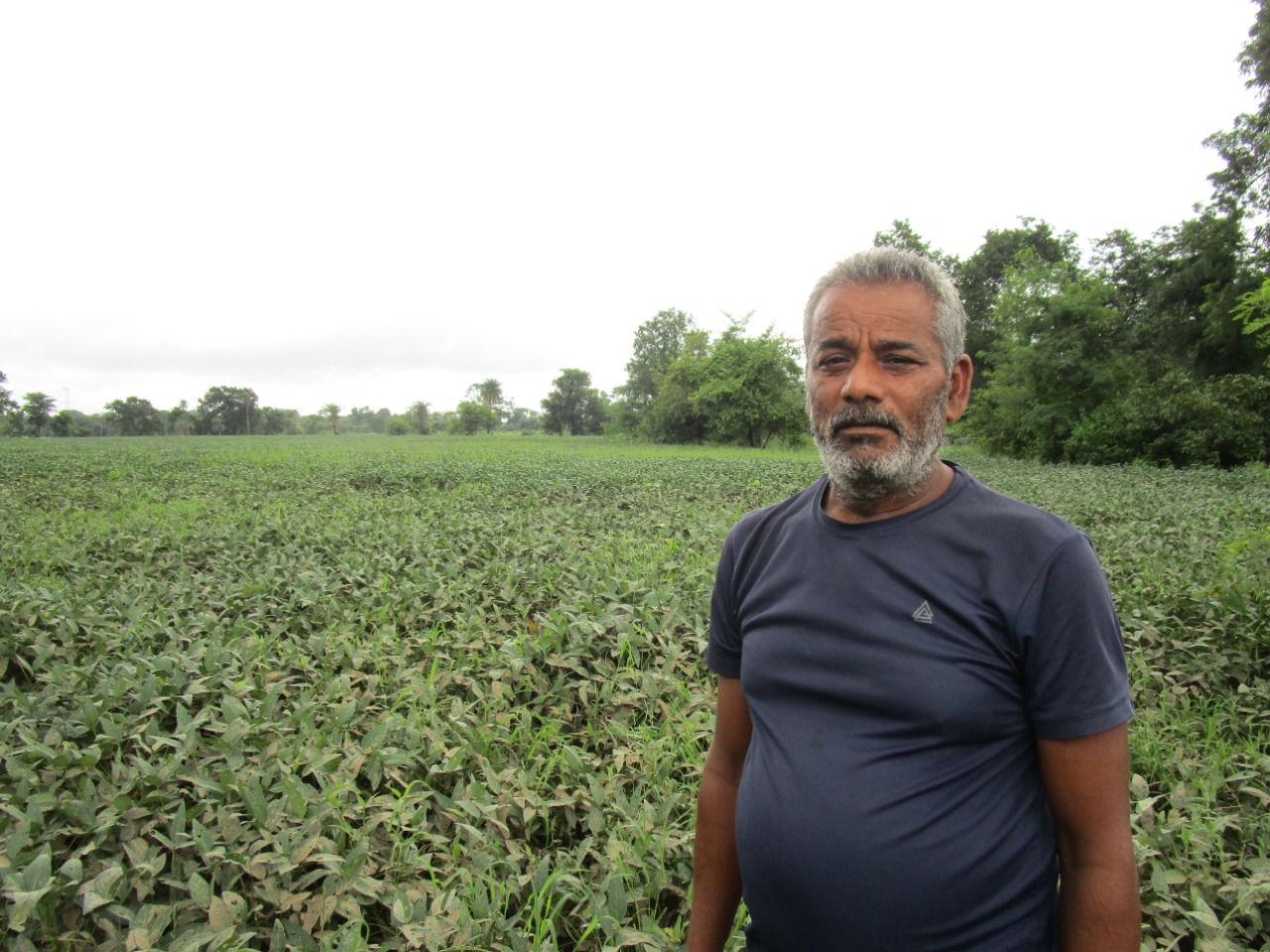Farming has become a profession that demands constant improvement and education. Those who fail to keep up with the pace are often left behind with considerable losses to bear. In an attempt to revitalise farming efforts, Ramesh Mewada spares no effort.

Farming is the primary source of livelihood for Ramesh Mewada. At the age of 57, almost throughout his life, Ramesh has witnessed the farming evolve around his village- Raju Khedi. With growing age and the burden of a reasonably large family of five, Ramesh has managed to educate his three children, but with serious challenges.
According to him, farming has changed substantially since his childhood. The traditional approach of farming was considerably different from the modern approach. The intensive use of indigenous knowledge in cultivation had its advantages and drawbacks. While the farmers used little pesticides and fertilisers in the past, the soil remained of high quality. Still, at the same time, pestilence in the crop significantly affected the final productivity. It thus becomes necessary for the farmers to keep up with the pace of the world.
A similar resolute was made by Ramesh Mewada when he started attending the training organised for the farmers under the programme Good Farming – Good Food. The programme focuses on training the farmers from five districts of Madhya Pradesh in good agricultural practices. The training ranges from land preparation to the very last and essential harvesting, storage, and distribution activities.
Ramesh had realised that his small piece of land, which measures around a hectare, cannot be enough to sustain a family of five, especially when all three of the children requires constant funds for education. As an investment towards his children’s future, Ramesh took a loan from the bank to pay for their education’s fee. He also had to leave farming and move to cities to find a better source of income, but later realised that agriculture was always his calling.
After joining the programme’s training, Ramesh has learned and applied modern and scientifically proven methods of agriculture to his farms. Since then, he has been able to take higher crop production, especially in the farming of Soy and vegetables. In an attempt to constantly improve his practices, he keeps in touch with the field experts from Solidaridad who have wholeheartedly assisted him in chalking out a solution; Ramesh shares his gratitude for the swift assistance-
The naturally produced bio pesticides and bio fertilisers like Dashparni and Jeevamrut can help save a substantial amount of money spent on agricultural inputs. Ramesh, along with his friends, has started preparing his fields and crops in a sustainable and ecologically safe manner.
The farmers from the village are also advised to adopt climate-resilient practices, which proves beneficial during times of drought or excessive rains, a common feature in Madhya Pradesh’s weather during the rainy season. Tilling his land with Broad Bed and Furrow technique and using draught tolerant variety, Ramesh prepares for unforeseen weather-related calamities. He explains-
For the past three years, Ramesh has been growing vegetables and Soy on his small farm with great success. As a smallholder farmer, he has made great strides to bring his monthly income to a sustainable level. Although his children have now graduated and are earning for the family, Ramesh finds his peace in successful farming. He strives to improve the practices under the collective guidance of Good Farming – Good Food and its partners.
